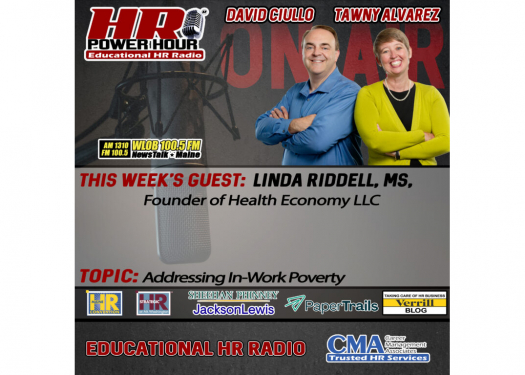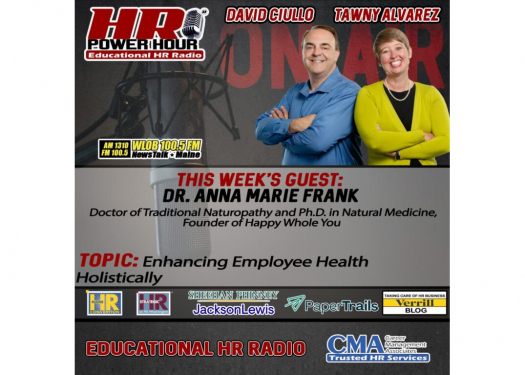COVID-19: Updated FAQs
Employers across the country are struggling with how to support their employees and their customers, and also to keep their business afloat, as the cry for social isolation to curb the spread of the novel COVID-19 (coronavirus) grows stronger. There are a lot of complicated issues that we are trying to sort through in a moment of crisis and the landscape continues to change.
Legislation is being proposed at both the federal and state level, which is intended to address employee rights with respect to staying at home, right to continued compensation from their employer and/or their right to unemployment compensation. We at Verrill are closely monitoring legislative developments and providing updates as we learn more.
In the meantime we wanted to take a moment to share our thoughts on commonly asked questions. As a backdrop to our answers, a quick review of the law:
- Ordinarily, you should not treat employees differently because they have been diagnosed with an illness, but the Americans with Disabilities Act carves out an exception when the employee’s health condition represents a “direct threat” to the health and safety of themselves or their coworkers and that threat cannot be eliminated or reduced by reasonable accommodation.
- The EEOC requires you to make an individual assessment based on factual information. The employer needs to assess the duration of the risk, the nature and severity of the potential harm, the likelihood that potential harm will occur, and the imminence of the potential harm.
- The EEOC has not yet updated their guidance on pandemic preparedness, so they are referencing their earlier guidance that dates back to the 2009 H1N1 outbreak. In that guidance, the EEOC recommended employers follow the guidance of the CDC or state and local public health authorities.
- The federal CDC has declared COVID-19 to be a pandemic and is requiring those who test positive to self-quarantine.
The FAQs:
1. May I require employees to tell me if they have tested positive COVID-19 or are symptomatic, or if someone in their household has tested positive or is symptomatic?
Answer: We are all aware that there are limits under the ADA regarding what you can ask employees about their own health and the health of their loved ones. In this instance, where the virus is so contagious and can for some, be deadly, our view is that you can require employees to let you know if they or one of their household members test positive or are symptomatic. However, that information should only be shared with those who have a need to know. Employees have privacy rights and therefore you have to be careful how you use that information. We encourage you to contact legal counsel if you believe employees may have been exposed at work.
2. May I send an employee home and require they stay away from work if they have tested positive for COVID-19 or live with someone who has tested positive?
Answer: Yes, and you should.
3. May I send someone home if they are symptomatic?
Answer: This might be a case-by-case assessment. Many people are still getting over the colds they had in February and early March. What are the symptoms? How close do they interact with other employees? Did they have the symptoms before the breakout? The important thing is to base your assessment on factual information. The CDC outlines specific symptoms to watch for and it is important to reference that guidance before making any decisions. In the end, we think employers can be conservative and send employees home when in doubt. And certainly employers should encourage their employees to stay home when sick.
4. May I send someone home if they are at risk (over 65, health issues, etc.)?
Answer: Singling out particular employees might be risky. Being in the risk group alone likely does not mean that an employee is in danger while at work. It is best not to not make broad policy decisions based solely on demographics such as age. If someone has lung issues or a weakened immune system, you might speak to them individually and accommodate them the best you can. It is best to reach agreement with the employee as to what is best for them.
5. May I tell someone that they have to self quarantine if they traveled recently or have been exposed to someone who tested positive?
Answer: There is a concern that requiring a self quarantine might be a technical violation of the ADA as it might be viewed as treating the employee differently based on a perceived disability. Certainly it is easier to justify if the employee recently traveler to a country or zone identified by the CDC as a danger zone. Given the serious threat of the virus, many employers are being aggressive and making an employee self quarantine, usually also making sure the employee is paid while being out of work and working from home as much as possible.
6. Do I have to allow an employee work from home if the employee does not want to come to work because they are worried about being exposed to the virus?
Answer: The answer may depend on the employee’s personal health circumstances. That aside, we generally recommend not making an employee come to work if they are afraid to be there, especially if they are considered at-risk.
7. Schools have been closed and our employees need to be at home to watch their kids. Do we need to permit that?
Answer: Technically there is an argument that legally employers do not need to allow employees to stay at home with their kids who are not sick. That aside, we are advising employers to work with employees to find a balance so that they can make sure their kids are safe during this scary time. An example might be that the spouses alternate staying home with the kids. No employee should be disciplined or fired for choosing to stay home with their kids at this time.
8. Do we have to pay employees who stay home from work because of the virus?
Answer: Employer’s may follow their existing PTO / vacation / sick leave policies. We recommend that employees should be allowed to take their sick time / PTO and vacation time. Things might change as there is legislation pending which may require employers to do more for their employees, and also might make unemployment compensation available.
9. Once an employee’s PTO is used up, can the time away from work be unpaid?
Answer: The answer for non-exempt employees is yes assuming the employee is not doing any work. The answer is more complicated with regard to exempt employees. The answer depends on why the employee is out of work and whether the employee will be performing any work. If you are thinking about having exempt employees stay out of work and not get paid, first consult with legal counsel.
10. We are thinking about paying our employees additional sick leave. If we send people home, can we require they use their PTO first before we pay them any additional sick leave?
Answer: Our first advice is to follow your current policy. There is currently no law requiring you to pay additional sick leave to your employees who fall ill due to COVID-19. The law is changing very quickly here. There is pending legislation in both federal and many state governments that may change this answer. If you decide to pay additional sick leave, you must do so in a way that does not discriminate based on any protected characteristics. The problem with requiring people to first use their PTO is that the people who took vacations will end up getting more time off compared to the people who did not. So those who decided to work will essentially lose their PTO. While it may be unfair, unless there is a discriminatory intent or effect, it is probably legal…for now.
11. I have an employee whose kids are home from school. The employee is trading child care duties with their spouse and needs to stay home 2-3 days per week. They cannot work from home. Do I need to pay them for the full week?
Answer: Again, this is changing quickly, but for now you do not need to pay employees for the time they are not working. There is some pending legislation that may entitle employees to unemployment benefits if they are forced to stay home with children as a result of school closures. But those bills have not yet passed.
12. If we close our offices to work from home, do we need to pay for people’s internet and cell phone usage?
Answer: It is probably a good idea to have a policy providing a credit for internet and phone access. Many states have an expense reimbursement law and those laws vary widely in scope. The FLSA has no such requirement provided that the expenses incurred by the employee do not cause the employee to dip below the minimum wage. Many states, including Maine, do not require reimbursement for phone and internet. So if offering a credit presents a hardship for your business, we might want to make an individual determination as to what your policy should be.
13. Do we have to provide employees with ergonomic work stations at home?
Answer: The answer may very well be yes for those with health issues. It would not be required for other employees, but might be a good idea.
14. If we close our offices to work from home, do we need to pay wages to people who do not have computers and cell phones?
Answer: No. Unless the law changes, typically you do not need to pay employees who cannot work because they cannot access your company’s systems. However, do not forget the requirements for paying exempt employees who do any amount of work during the day.
15. Our office is closing for 4 weeks, do I need to pay employees?
Answer: You can follow your current policies for short term layoffs. Likely employees will be entitled to unemployment compensation. With anticipated changes in the law, an employee’s right to unemployment will likely be clarified and expanded.
No doubt there are other questions that need to be answered. And every employer is different, with different challenges and different needs. This Q&A is intended to give employers a general sense of what they can or cannot do, but the answers can vary depending on the specifics of each circumstance, so we encourage you to not only call us if you are struggling with how to make your employees feel supported, but also to protect your business.
Please also check out the firm's previous blog posts on this topic:
- The Coronavirus: FAQs for Employers (Published March 5, 2020)
- High-deductible Health Plans Can Cover Coronavirus Costs (Published March 11, 2020)
- Should Employers Recognize COVID-19 As A Work-Related Injury? (Published March 12, 2020)
- Leave Sharing Programs: A Critical Bridge for Employees Affected by COVID-19 (Published March 13, 2020)



















